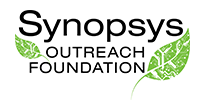First and Foremost
ANY PROJECT IN VIOLATION OF SCVSEFA, ISEF OR CALIFORNIA EDUCATION RULES AND REGULATIONS WILL NOT BE ACCEPTED.
Avoid Science Fair Projects That Are Unlikely to be Accepted
- Effect of colored light, music, or talking on plant growth (OK at middle school if variables included)
- Crystal growth (OK at middle school if variables included)
- Effect of cola, coffee, etc. on teeth (OK at middle school if variables included)
- Strength/absorbency of paper towels (discouraged because seen often)
- Most consumer product testing of the “Which is best?” type (OK grades 6–8 only)
- Astrology projects
- Maze running (unless there are variables and controls)
- Any project that boils down to simple preferences
- Optical Illusions
- Planaria worm regeneration (unless project has variables and >10/group)
- Detergents vs. Stains (OK at middle school if variables included).
- Basic solar collectors or ovens (OK if engineering design variables included)
- Acid rain projects (To be considered, thorough research into the composition of acid rain and a scientifically accurate simulation of it would be necessary.)
- Basic flight testing, e.g., planes, rockets (OK if variables are included)
- Battery life comparisons (plug-in and run-down type)
- Any project involving the distillation of alcohol. (NOT PERMITTED)
- Pyramid power
- Color choices of goldfish, etc.
- Basic chromatography (OK at middle school if variables are included)
- Wing, fin shape comparison (OK if mass is taken into consideration)
Avoid Projects that Lack a Measurable Endpoint
Results should be expressed in units of growth, size, mass, speed, time, volume, frequency, replication rate, chemical product analysis, etc.
Avoid Overly-Common Projects
The following projects may meet all requirements but often do not win awards because they are too commonly encountered by judges. With frequently done projects, acceptance may be granted if they have an original twist with exceptional thoroughness and solid scientific method.
- Comparison of plant growth in different fertilizers
- Rusting of nails in different pH solutions
- Comparison of strength in different bridge designs
- Strength of paper towels
Projects Taken from the Internet
Projects taken directly from the Internet are considered plagiarism, and may be disqualified. Judges may identify projects similar to examples posted on the Internet and they will be ranked low for creativity. Examples of projects from sites such as www.sciencebuddies.org are good sources of inspiration, but the idea for your project should be original.
Scientific fraud and misconduct are not condoned at any level of research or competition. This includes plagiarism, forgery, use or presentation of other researcher’s work as one’s own and fabrication of data. Fraudulent projects will fail to qualify for competition in the Synopsys Championship and subsequent affiliated fairs. SCVSEFA reserves the right to revoke recognition of a project subsequently found to have been fraudulent. Students who have their projects removed from competition for fraud or misconduct may not enter the Synopsys Championship the following year.

